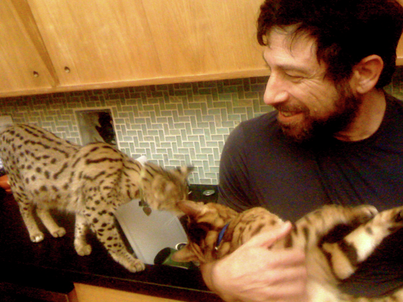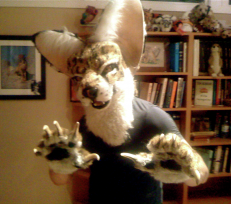In her late thirties, Spencer Bane’s wife became sick with breast cancer. As her condition worsened, the couple was faced with the unthinkable, and they sat down to discuss what they would do differently with their lives. If they could do it again, knowing that life is so fleeting, what would they change?
Spencer Bane (not his real name) has lived an incredible life thus far. He's graduated from Harvard and MIT, been a doctor, invented medical equipment, became a millionaire, started several businesses and a nonprofit, married, and now he teaches at Stanford, works in a nonprofit he helped found, and has wildcats in his Northern California home. He's also full of poignant wisdom, dispelled eloquently and garnered from his impressive travels.

By my standards at least, and more importantly by his own measure, Spencer's fifty years have been exciting to say the least, and successful in more ways than one. This is why it's surprising to hear how he's been spending his time and money lately.
"I'm really pushing furriness this year," said Spencer. "I must be hitting eight conferences this year, and I'm really enjoying that."
"Furriness" means different things for different people. Spencer goes to "furry conventions," which, for the unfamiliar, are meet-ups for those who celebrate, draw, and sometimes dress up as an animal persona. Spencer has been to many conventions, and he wears full-body spandex, called Zentai, in the pattern of various wild cats. He also has a custom-made serval costume, complete with fur, tail, and claws. It looks somewhat menacing, but it was clear that many felt comfortable approaching him, talking about the costume, and hugging. Many were comfortable enough even to follow him to his room or other room party for casual encounters.
Sometimes Spencer will even wear these costumes in public, non-furry-related places. He wore a tiger-striped full-body suit with a tail and a jacket to a university class reunion, claiming that his outfit adhered to the "coat and tails" dress code. His classmates were surprised, but amused.

Spencer says that going to furry conventions "didn't even rate on the scale" of weird things he's done when he told his family about (the more innocent parts of) furriness. More surprising, he said, was when he announced to his family that he was going to get wildcats in his house. His residence is now a registered rescue, and he allows people to come in and visit his cats. This includes a bengal (or Asian leopard cat), a Savannah cat (hybrid of domestic and wild cats) and a full serval. The serval, who stands about three feet high, was a runt of a litter and so a zoo reject.
One of the more surprising things he did was when he (temporarily) dropped out of medical school to start a company called Boston Medical Research.
After Venture Capital invested in his idea, Spencer got to work creating a chip. "What we were finding was that a large number of cases of medications not working, and hospitalizations, were due to the fact that people didn't remember to take their pills," explained Spencer. "So our company created a chip to put in pill bottles that would remind users when to take their pills."
The product proved effective in clinical trials. However, insurance companies didn't want to pay for the technology and care providers were concerned about jealousy should only some patients get this advantage. In the end the product failed.
"It was probably the saddest day of my life, up until that time. I would say it was the saddest thing that ever happened to me, other than the loss of people. I thought it was like losing a small child, except now that I have children, I know how different it is."
However disheartened Spencer might have been, he was not thrown off course. He continued inventing, made a few businesses, and became a millionaire. One of his inventions that did take off was the T-stat, a sort of X-ray that measures the growth of tumors non-invasively. Now he's working on a non-profit for reducing the amount of CO2 in the atmosphere.
"Even if someone came and bought this company, you know, for $100 million, and this time as opposed to the Venture Capitalists getting most of it, we got most of it," Spencer said, "I would still spend some of my time on invention. Because it's intellectually interesting, it's exciting."
In her early forties, Spencer's wife succumbed to cancer. She was survived by her husband, children and mother, who all live together south of San Francisco, California. Spencer hasn't remarried since then, but he's able to find love in all sorts of places.
So what did they decide in their final days together, about how they should have lived their lives?
“It was really kind of amazing,” said Spencer, “because we thought we wouldn’t change anything. There was nothing that we wanted to be doing better then we were doing right then. And I want to keep on doing the same thing...finding new, exciting things, finding new places to go, maybe getting some more cats, maybe bigger ones. That would be fun."
That is kind of amazing.


 RSS Feed
RSS Feed